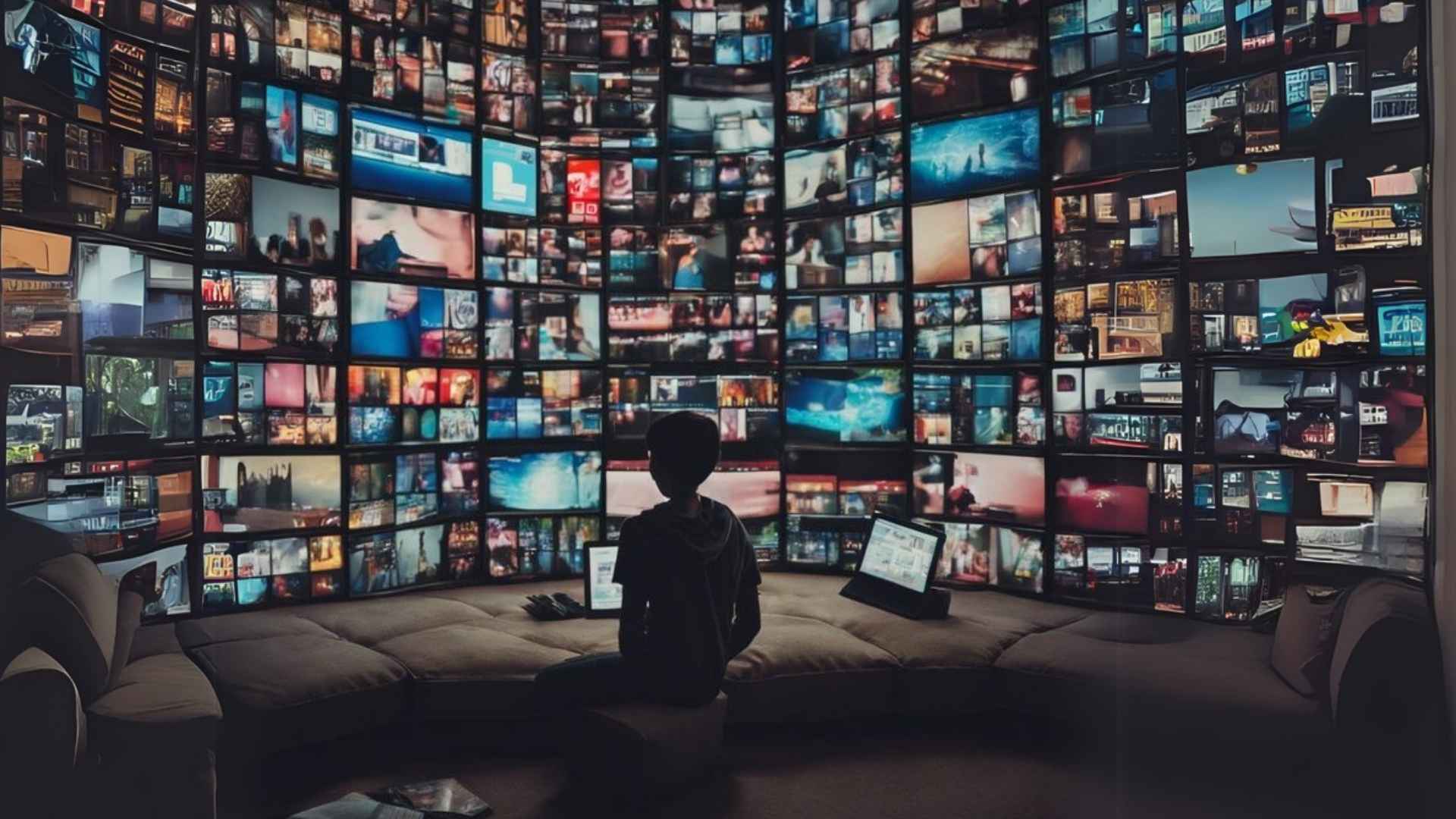In today’s digitally connected world, friendships are continually evolving, and influenced by various external factors. While social media platforms and peer interactions offer avenues for connection and support, they can also introduce unintended emotional challenges. This article delves into how social media influence and peer pressure can inadvertently cause emotional harm among friends, supported by scientific research and expert insights.
The Double-Edged Sword of Social Media in Friendships
Social media platforms have revolutionized the way we connect, offering instant communication and a window into each other’s lives. However, these platforms can also introduce complexities that may strain friendships.
Social Comparison and Envy
One significant issue is the tendency for individuals to compare themselves to the curated and often idealized portrayals of others’ lives on social media. This comparison can lead to feelings of envy and inadequacy, which may strain friendships.
- Curated Content Leading to Unrealistic Comparisons: Social media users often present an idealized version of their lives, showcasing achievements, travels, and joyful moments. Friends viewing this content may engage in upward social comparisons, leading to feelings of inadequacy and diminished self-worth. This phenomenon can create a sense of competition rather than support within friendships, as individuals strive to match the perceived success of their peers.
- Perception of Imbalanced Success: When friends frequently post about their accomplishments or social events, it can inadvertently highlight disparities in personal achievements or social inclusion. This perceived imbalance may foster resentment or jealousy, undermining the mutual support that is foundational to healthy friendships. Over time, these negative emotions can erode trust and intimacy between friends.
- Emotional Distance Due to Envy: Persistent feelings of envy can lead individuals to withdraw emotionally from their friends, creating a barrier to open communication. This withdrawal can be misinterpreted as disinterest or aloofness, further straining the relationship. Addressing these feelings through honest conversations is crucial to maintaining the health of the friendship.
Privacy Boundaries and Oversharing
The public nature of social media can blur the lines of personal privacy. Friends might inadvertently share information or photos without consent, leading to feelings of betrayal or discomfort. Research indicates that such oversharing can result in negative responses and decreased relationship satisfaction among peers.
- Unintentional Breaches of Confidentiality: Sharing personal information or photos without explicit consent can violate trust, even if done with good intentions. For instance, posting a group photo that includes someone who prefers to keep a low online profile can cause discomfort or anxiety. Respecting each friend’s privacy preferences is essential to prevent unintended harm.
- Differing Comfort Levels with Public Exposure: Not all individuals are comfortable with the same level of online visibility. When friends share content involving others without considering their comfort levels, it can lead to feelings of exposure and vulnerability. Establishing clear boundaries regarding what is acceptable to share can help mitigate these issues.
- Long-Term Implications of Digital Footprints: Once information is shared online, it can be challenging to remove. Friends may inadvertently contribute to each other’s digital footprints in ways that could have future repercussions, such as affecting professional opportunities or personal relationships. Being mindful of the permanence of online content is crucial in respecting each other’s long-term privacy.
Perceived Exclusion and FOMO
The fear of missing out (FOMO) is amplified by constant exposure to friends’ activities online. Seeing gatherings or events one wasn’t invited to can lead to feelings of exclusion and resentment. Studies have shown that this perceived social exclusion can have detrimental effects on mental health and interpersonal relationships.
- Visible Social Gatherings Leading to Feelings of Exclusion: When friends post about events or gatherings that others were not part of, it can create a sense of being left out, even if the exclusion was not intentional. This perception can lead to feelings of loneliness and decrease overall life satisfaction.
- Pressure to Maintain an Active Social Presence: The constant stream of social activities displayed online can pressure individuals to participate in events to avoid missing out, even when they prefer rest or solitude. This pressure can lead to social burnout and negatively impact mental health.
- Impact on Self-Esteem and Friendship Dynamics: Repeated experiences of perceived exclusion can erode self-esteem and foster insecurity within friendships. Individuals may begin to question their value within the social group, leading to strained interactions and potential withdrawal from social activities.
Peer Pressure: The Unseen Force in Friendships
Peer pressure isn’t always overt; subtle influences among friends can lead individuals to engage in behaviors they might otherwise avoid, potentially causing emotional harm.
Conformity and Loss of Authenticity
The desire to fit in can pressure individuals to conform to group norms, even if they conflict with personal values. This conformity can lead to internal conflict and a sense of losing one’s identity. Research highlights that adolescents with a strong need for peer acceptance are more susceptible to engaging in behaviors incongruent with their personal beliefs.
- Adoption of Group Behaviors Contrary to Personal Values: Individuals may find themselves participating in activities or expressing opinions that align with the group but contradict their own beliefs. This dissonance can lead to internal stress and a diminished sense of self.
- Suppression of Personal Interests and Preferences: To maintain group cohesion, individuals might downplay or hide their genuine interests, leading to a lack of fulfillment and authenticity in interactions. Over time, this suppression can result in resentment towards the group and oneself.
- Long-Term Impact on Personal Development: Consistently prioritizing group norms over personal values can hinder personal growth and self-discovery. It may take years for individuals to reconnect with their true selves after prolonged periods of conformity.
Risky Behaviors and Emotional Fallout
Friends can unintentionally encourage participation in risky behaviors, such as substance use or reckless activities. While these actions might be framed as harmless fun, they can lead to significant emotional and physical consequences.
- Normalization of Hazardous Activities: Within certain friend groups, behaviors like excessive drinking, drug use, or reckless driving may be portrayed as typical or even desirable. Individuals may participate to gain acceptance, disregarding personal boundaries and safety concerns.
- Emotional Consequences of Risk-Taking: Engaging in risky behaviors can lead to feelings of guilt, anxiety, and regret, especially if the actions result in negative outcomes. These emotions can strain friendships, particularly if individuals feel they were pressured into activities against their better judgment.
- Impact on Future Decision-Making: Early experiences with peer-pressured risk-taking can influence future choices, making individuals more susceptible to engaging in similar behaviors later in life. This pattern can have long-term implications for mental health and well-being.
Emotional Manipulation and Guilt
Some friends may use emotional tactics, such as guilt-tripping or passive-aggressive behavior, to influence decisions. This manipulation can erode trust and create emotional distress.
- Use of Guilt as a Control Mechanism: Friends might express disappointment or feign hurt to elicit compliance, making individuals feel responsible for their emotions. This tactic can lead to chronic feelings of guilt and obligation, undermining personal autonomy.
- Passive Aggressive Behavior in Friendships: Some individuals use indirect forms of emotional manipulation, such as silent treatment, sarcastic remarks, or exclusion, to influence their friends. This type of behavior creates a toxic dynamic where the affected person constantly second-guesses their actions to avoid conflict. Research indicates that prolonged exposure to passive-aggressive behavior can lead to increased stress, anxiety, and even depressive symptoms.
- Emotional Burnout and Resentment: Constantly feeling pressured to meet a friend’s emotional demands can result in emotional exhaustion. When individuals prioritize their friend’s needs over their own well-being, it can lead to resentment and distance in the relationship.
- Long-Term Effects on Mental Health: Repeated exposure to manipulative friendships can negatively impact self-esteem and the ability to trust others. Over time, individuals who experience high levels of emotional manipulation may develop avoidant tendencies, preferring isolation over social engagement. Studies have shown that relational aggression in friendships is linked to social withdrawal and difficulty forming healthy relationships later in life.
The Role of Social Media in Peer Pressure and Emotional Harm
Social media amplifies many of the pressures found in friendships, creating an environment where validation, comparison, and public interactions significantly impact relationships. This digital space often reinforces peer pressure through viral trends, public expectations, and curated self-presentation.
Viral Challenges and Social Conformity
Online trends and viral challenges create an environment where individuals feel obligated to participate to remain relevant within their friend groups (Kowalski et al., 2014 ).
- Pressure to Engage in Risky or Harmful Activities: Viral social media challenges, such as dangerous stunts or reckless behaviors, often push individuals to participate due to fear of missing out (FOMO). Studies have found that adolescents are more likely to take risks when they perceive that their peers are doing the same, further reinforcing the power of online peer influence.
- Psychological Consequences of Non-Participation: Those who choose not to engage in social media trends may feel excluded from their peer groups, leading to a decline in self-worth. A study found that adolescents who abstain from social media trends often report feeling socially disconnected, despite maintaining offline friendships.
- Impact on Self-Perception and Identity: Continuous exposure to online trends can distort self-perception, making individuals feel pressured to conform to behaviors that do not align with their personal beliefs. This can create a loss of personal identity, as individuals mold their behaviors based on social media norms rather than their intrinsic values.
The Cycle of Validation and Online Approval
The social validation loop on platforms such as Instagram, TikTok, and Facebook creates an environment where digital approval becomes synonymous with social worth. Many friendships now carry unspoken obligations regarding engagement on social media, leading to heightened anxiety when those expectations are not met.
- Obligation to Like and Comment on Posts: Some individuals expect their friends to consistently engage with their posts through likes, comments, or shares. When these expectations are not met, it can lead to feelings of disappointment or resentment.
- Anxiety Over Social Media Performance: Individuals often feel pressured to curate their online presence to receive higher engagement. The pressure to post “like-worthy” content can lead to anxiety, especially when posts do not receive the anticipated number of interactions.
- Comparing Online Engagement Among Friends: When some friends receive significantly more likes and comments than others, it can create an environment of competition rather than support. Research has shown that this type of digital comparison can lead to self-esteem issues, especially among young adults who are more prone to social comparison.
Perceived Exclusion and Digital Ghosting
Social media platforms allow individuals to connect instantly, but they also create new ways for friendships to experience strain. Digital ghosting and social exclusion have become more common, leading to increased emotional distress.
- The Psychological Impact of Being Ghosted: Ghosting, or suddenly cutting off communication without explanation, can cause significant emotional distress. A study found that individuals who experience ghosting report higher levels of anxiety and self-doubt, as they are left without closure.
- Feeling Left Out from Group Chats and Online Circles: Many social interactions now occur in group chats, where some individuals may feel excluded or ignored. The experience of being left on “read” or not receiving responses in digital spaces can lead to a heightened sense of loneliness, reinforcing insecurities about one’s place in a friendship.
- Selective Engagement in Conversations: When individuals selectively engage with some friends online while ignoring others, it can create unintended emotional harm. Those who are excluded may feel undervalued or question the strength of their friendships, leading to unnecessary tension.
How to Mitigate Emotional Harm in Friendships
Given the complex nature of digital and peer influences, maintaining healthy friendships requires intentional effort and awareness. Individuals can take proactive steps to reduce the likelihood of unintentionally harming their friends.
Establishing Healthy Boundaries in Friendships
Boundaries are crucial in maintaining respectful and supportive friendships. Setting clear expectations regarding social media interactions, emotional availability, and peer pressure can help reduce tension.
- Communicating Personal Social Media Preferences: Discussing how much engagement is expected on social media can help prevent misunderstandings. Letting friends know that one values in-person interactions over digital ones can also help realign expectations.
- Setting Boundaries Around Personal Time and Space: Not every social event or trend requires participation. Being upfront about personal limits allows friends to respect each other’s individual needs, reducing unnecessary pressure.
- Encouraging Openness and Direct Conversations: If a friend feels neglected or hurt, having an honest conversation rather than allowing resentment to build is essential. Encouraging open communication can help resolve minor issues before they escalate.
Practicing Mindful Social Media Use
Being conscious of how social media affects friendships can help individuals build stronger, healthier connections.
- Avoiding Passive Social Media Use: Studies show that passive scrolling leads to more negative mental health outcomes than active engagement. Being mindful of time spent on social media and reducing unnecessary scrolling can help maintain emotional balance.
- Engaging in More Meaningful Interactions: Instead of focusing on likes and comments, prioritizing direct conversations and personal connections can strengthen friendships. Sending private messages or making time for in-person interactions helps maintain authentic relationships.
- Taking Social Media Breaks When Necessary: Stepping away from social media periodically allows individuals to reset and reduce the impact of digital pressures on their friendships. Research suggests that taking breaks from social media can significantly lower stress and improve overall mental well-being.
Fostering Individual Growth in Friendships
True friendships allow for personal identity and growth without fear of judgment. Supporting friends in making independent decisions strengthens the relationship.
- Encouraging Individual Interests and Passions: Instead of expecting constant conformity, supporting friends in pursuing their unique interests fosters deeper respect and understanding.
- Recognizing That Friendship Doesn’t Require Constant Validation: Friendships should not be based on unspoken obligations or expectations. Understanding that relationships evolve and allowing for natural changes ensures that friendships remain strong over time.
Friendships are meant to be sources of joy, support, and emotional security, but social media influence and peer pressure can sometimes introduce unintended harm. By setting clear boundaries, engaging in mindful social media use, and allowing for individual growth, friendships can thrive without the stress of digital validation or forced conformity. Recognizing and addressing these challenges is key to maintaining authentic and emotionally fulfilling relationships.
If social media, peer pressure, or digital overwhelm is affecting your friendships and emotional well-being, mindfulness counseling can help you regain clarity, confidence, and balance. Through personalized sessions, I guide individuals to navigate relationships with self-awareness, set healthy boundaries, and reduce anxiety caused by comparison or online validation.
Learn practical techniques to cultivate emotional resilience, improve communication, and create fulfilling friendships without digital stress. Book a session today and start building a healthier, more mindful approach to relationships and personal well-being.
Reach out via email or WhatsApp to begin your journey toward emotional clarity and inner peace.
FAQs on Social Media, Peer Pressure, and Their Unintended Impact on Friendships
General Questions on Social Media and Friendships
How does social media affect friendships in modern times?
Social media has redefined how friendships operate, offering instant communication and connection. However, it also introduces comparison, FOMO (fear of missing out), and validation-seeking behaviors, which can strain relationships. Studies suggest that excessive social media engagement can lead to jealousy, misunderstandings, and emotional detachment in friendships.
Why do friendships feel different in the digital age?
Friendships today are heavily influenced by social media interactions rather than in-person bonding. The constant exposure to curated lifestyles, online validation (likes, comments), and digital communication can reduce genuine emotional intimacy. Research suggests that relationships built on digital interactions often lack depth, leading to increased loneliness despite being socially connected online.
Can social media make people feel lonely even when they have many friends?
Yes, research has shown that excessive social media use increases feelings of loneliness. This paradox occurs because online connections often replace real-life interactions, leading to a lack of genuine emotional support. Studies indicate that passive social media scrolling leads to increased social comparison, lower self-esteem, and higher levels of loneliness.
The Role of Social Comparison and Envy in Friendships
Why does social media make people compare their lives to their friends’?
Social media encourages upward social comparison, where individuals compare themselves to the carefully curated and often idealized portrayals of their friends’ lives. This can lead to feelings of inadequacy, jealousy, and resentment, damaging the foundation of friendship. Studies suggest that constant exposure to online highlights increases dissatisfaction with one’s own life.
Can social media cause jealousy in friendships?
Yes, when friends post successes, vacations, or social events without certain individuals, it can highlight disparities in achievements or inclusion, leading to envy or jealousy. Research has shown that jealousy stemming from social media can lead to emotional withdrawal, resentment, and breakdowns in communication.
How can friends overcome jealousy caused by social media?
- Open conversations: Address feelings honestly instead of allowing resentment to build.
- Limit social media exposure: Reduce scrolling time to decrease comparisons.
- Focus on real-life bonds: Strengthen friendships through in-person interactions rather than digital validation.
Social Media Privacy and Its Impact on Friendships
Why do friends feel betrayed when personal information is shared online?
Social media blurs privacy boundaries, and sharing personal moments, private conversations, or group photos without consent can be perceived as a breach of trust. Studies indicate that social media oversharing leads to increased anxiety, feelings of vulnerability, and decreased relationship satisfaction.
How can you prevent oversharing and respect a friend’s privacy online?
- Ask for permission before posting photos or tagging someone.
- Understand different comfort levels—not everyone enjoys public online exposure.
- Be mindful of digital footprints—once something is posted, it may remain accessible indefinitely.
Can social media exposure lead to long-term conflicts between friends?
Yes, research suggests that digital footprints left by oversharing can have long-term consequences, such as affecting job opportunities or personal relationships. Friends who feel exposed or embarrassed due to posts they did not approve of may gradually distance themselves or lose trust in the friendship.
FOMO (Fear of Missing Out) and Its Effect on Friendships
Why does seeing social events online make people feel excluded?
Social media creates a false perception of exclusion, as individuals often see posts of social gatherings they were not invited to. Studies show that this perceived exclusion triggers feelings of rejection, lowers self-esteem, and increases social anxiety.
How can people deal with FOMO in friendships?
- Limit time on social media to reduce exposure to triggering posts.
- Practice gratitude by focusing on meaningful real-life connections.
- Communicate openly with friends instead of assuming intentional exclusion.
Can social media create unrealistic expectations of friendship?
Yes, social media presents an edited, idealized version of social interactions, making friendships appear more perfect or exciting than they truly are. This can create unrealistic expectations that lead to disappointment, insecurity, and misunderstandings in real-world friendships.
Peer Pressure and Its Influence on Friendships
How does peer pressure manifest in friendships?
- Peer pressure in friendships is often subtle but powerful, influencing behaviors, decisions, and even beliefs. It can cause individuals to:
- Conform to group behaviors, even when they don’t align with personal values.
- Suppress personal interests to fit in.
- Engage in risky behaviors, such as excessive drinking or reckless actions, due to pressure from friends.
Can friendships become toxic due to peer pressure?
Yes, toxic friendships are often characterized by emotional manipulation, guilt-tripping, and passive-aggressive behavior. Friends who demand constant validation, use guilt as a control mechanism, or make others feel obligated to conform can negatively impact mental health.
How can individuals resist peer pressure within friendships?
- Set clear boundaries and stick to personal values.
- Surround yourself with supportive friends who respect individuality.
- Recognize manipulation tactics and distance yourself from toxic relationships.
How to Strengthen Friendships in the Age of Social Media
What are healthy ways to maintain friendships in the digital era?
- Prioritize in-person interactions over online validation.
- Engage in direct communication rather than assuming intentions based on social media.
- Limit social media use to prevent excessive comparison and FOMO.
- Respect privacy and set boundaries to maintain trust in friendships.
Can taking social media breaks improve friendships?
Yes, research shows that periodic digital detoxes help reduce stress, improve mental health, and strengthen real-life relationships. Friendships flourish when interactions are based on meaningful communication rather than online validation.





